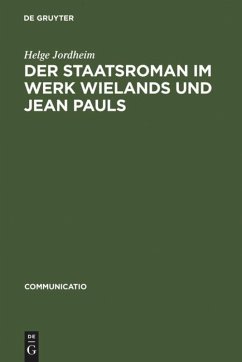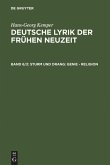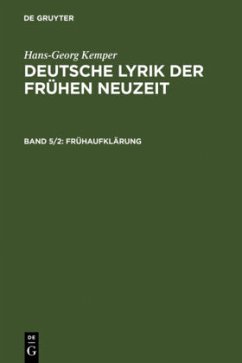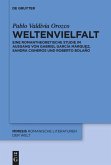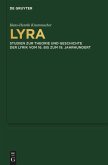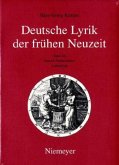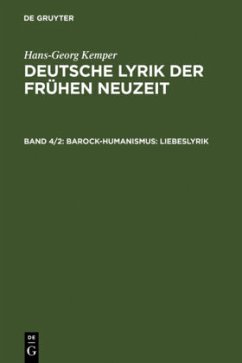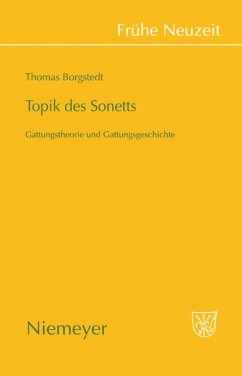What is politics? What is a novel? In the mid 18th century these questions were still unresolved. The study exploits this state of affairs for closer investigation of the convergence between genre theory and political theory. It takes its bearings from the "genre negotiations" to be found in the novels of Wieland and Jean Paul, disquisitions in which these authors attempt to arrive at conclusions about the political and poetological conditions under which they are writing. In terms of the history of the (German) novel, the background is formed by the transformations undergone by the 'Staatsroman' (political novel) genre on the threshold from the Baroque to the modern age.
Was ist Politik? Was ist ein Roman? In der Mitte des 18. Jahrhunderts standen beide Fragen noch offen. Eben in dieser Offenheit, behauptet die Studie, liegt eine Möglichkeit, die Konvergenz von Gattungslehre und Staatslehre näher zu untersuchen. Den Ausgangspunkt bieten die 'Gattungsverhandlungen', die in den Romanen Wielands und Jean Pauls stattfinden und durch die beide Autoren versuchen, sich über die politischen und poetologischen Bedingungen ihres Schreibens klar zu werden. Den gattungsgeschichtlichen Rahmen bilden die Transformationen der Gattung des 'Staatsromans'. Diese Gattung geht auf barocke und sogar antike Muster zurück, die ins 18. Jahrhundert hinein tradiert wurden. Forschungsgeschichtlich allerdings ist die Gattung in Verruf geraten, weil sie nicht die Ansprüche einer radikal antistaatlichen und utopischen Literatur erfüllen konnte, sondern der bestehenden politischen Wirklichkeit und ihrer Optimierung verpflichtet blieb. In dieser Studie wird dagegen ein dezidiert historischer Blick auf den Staatsroman der Aufklärung geboten, der literarische Topoi wie Fürstenerziehung, verborgene Prinzen, redliche Männer an korrupten Höfen und Geheimbünde als Mittel einer Vermittlung zwischen bürgerlicher Moral und absolutistischer Politik verstehen will.
Was ist Politik? Was ist ein Roman? In der Mitte des 18. Jahrhunderts standen beide Fragen noch offen. Eben in dieser Offenheit, behauptet die Studie, liegt eine Möglichkeit, die Konvergenz von Gattungslehre und Staatslehre näher zu untersuchen. Den Ausgangspunkt bieten die 'Gattungsverhandlungen', die in den Romanen Wielands und Jean Pauls stattfinden und durch die beide Autoren versuchen, sich über die politischen und poetologischen Bedingungen ihres Schreibens klar zu werden. Den gattungsgeschichtlichen Rahmen bilden die Transformationen der Gattung des 'Staatsromans'. Diese Gattung geht auf barocke und sogar antike Muster zurück, die ins 18. Jahrhundert hinein tradiert wurden. Forschungsgeschichtlich allerdings ist die Gattung in Verruf geraten, weil sie nicht die Ansprüche einer radikal antistaatlichen und utopischen Literatur erfüllen konnte, sondern der bestehenden politischen Wirklichkeit und ihrer Optimierung verpflichtet blieb. In dieser Studie wird dagegen ein dezidiert historischer Blick auf den Staatsroman der Aufklärung geboten, der literarische Topoi wie Fürstenerziehung, verborgene Prinzen, redliche Männer an korrupten Höfen und Geheimbünde als Mittel einer Vermittlung zwischen bürgerlicher Moral und absolutistischer Politik verstehen will.

